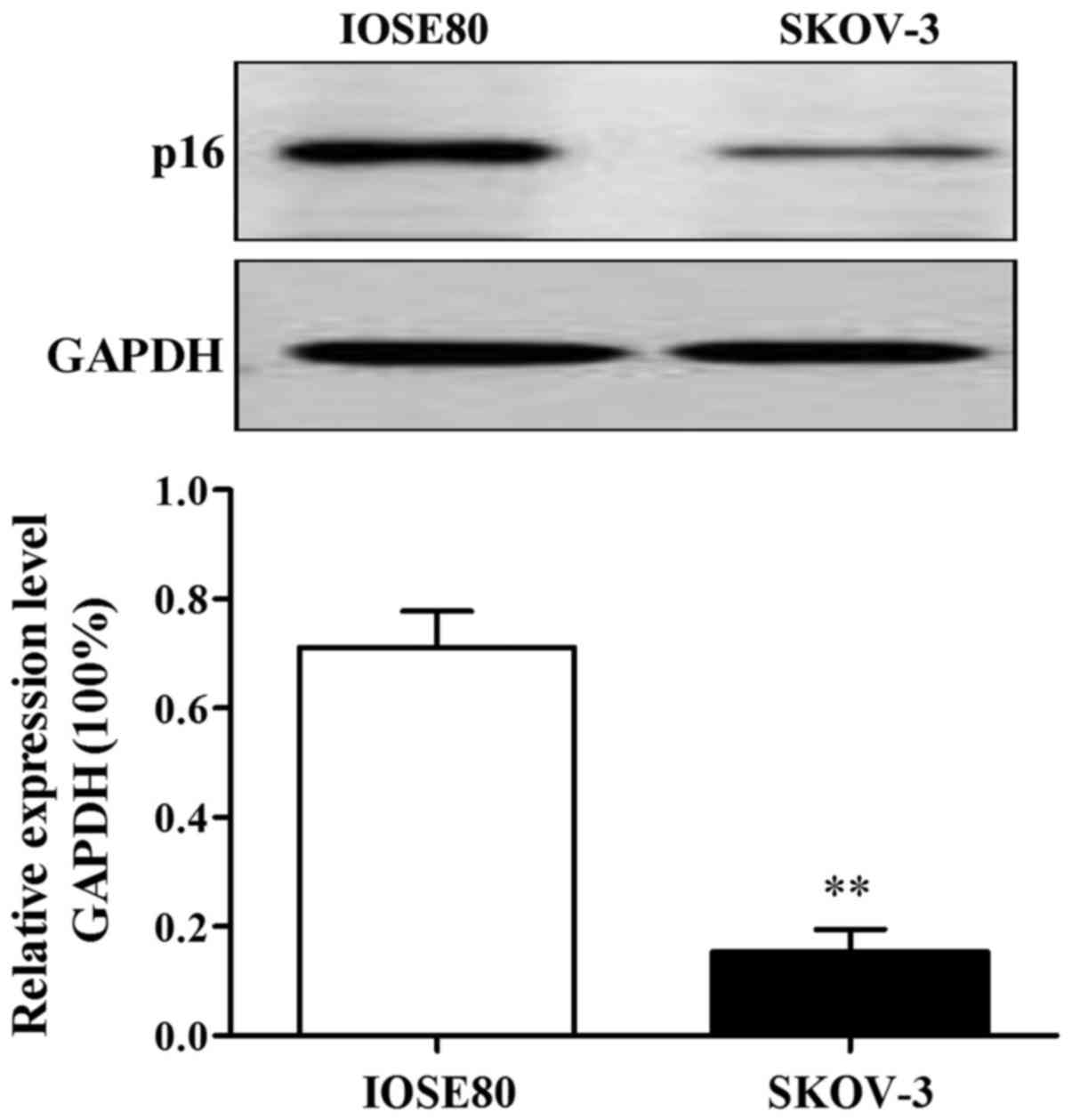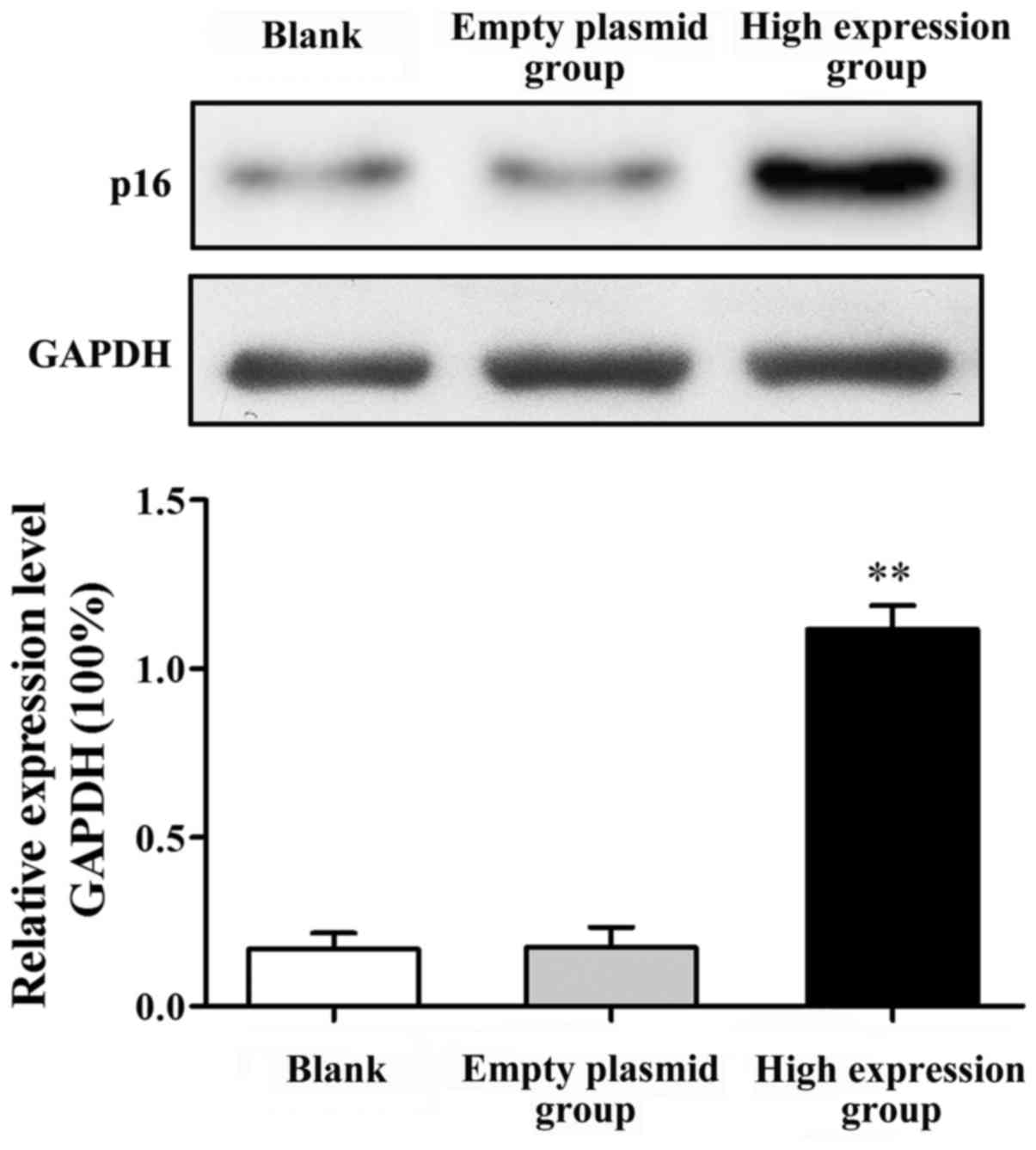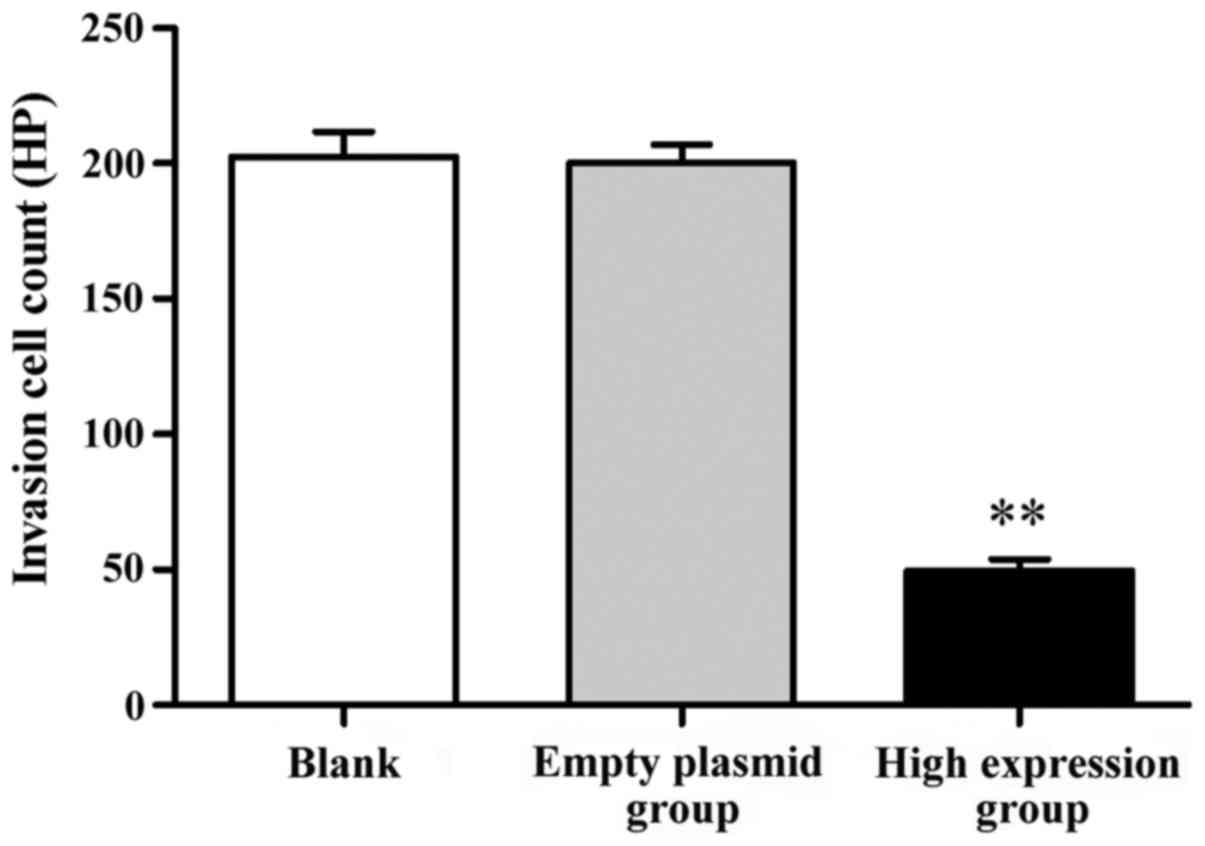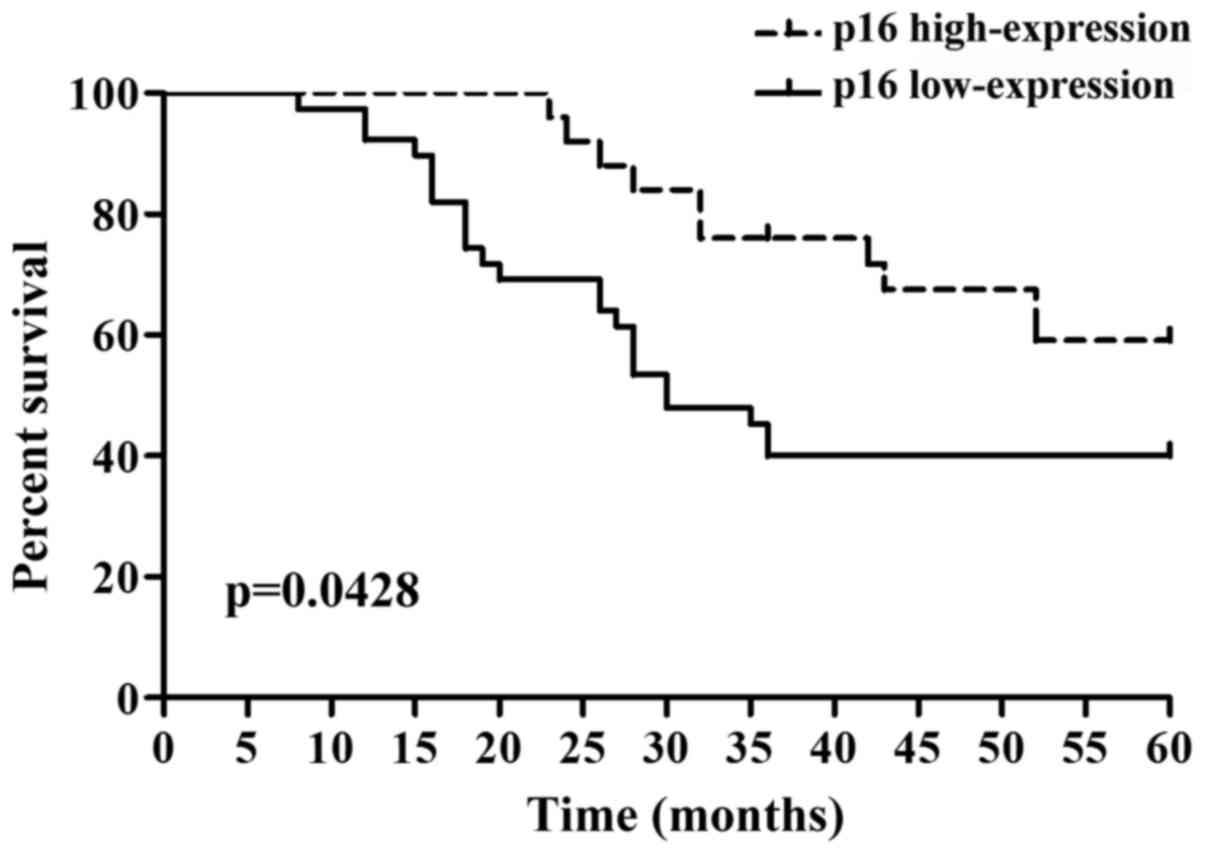|
1
|
Poveda Velasco A, Casado Herráez A,
Ruipérez Cervantes A, Rincón Gallardo D, García García E, Martín
González A, García López G, Fernández Mendiola C and González Ojeda
B: GEICO Group: Treatment guidelines in ovarian cancer. Clin Transl
Oncol. 9:308–316. 2007. View Article : Google Scholar : PubMed/NCBI
|
|
2
|
Jemal A, Bray F, Center MM, Ferlay J, Ward
E and Forman D: Global cancer statistics. CA Cancer J Clin.
61:69–90. 2011. View Article : Google Scholar : PubMed/NCBI
|
|
3
|
Haupt Y, Bath ML, Harris AW and Adams JM:
bmi-1 transgene induces lymphomas and collaborates with myc in
tumorigenesis. Oncogene. 8:3161–3164. 1993.PubMed/NCBI
|
|
4
|
Bhattacharyya J, Mihara K, Ohtsubo M,
Yasunaga S, Takei Y, Yanagihara K, Sakai A, Hoshi M, Takihara Y and
Kimura A: Overexpression of BMI-1 correlates with drug resistance
in B-cell lymphoma cells through the stabilization of survivin
expression. Cancer Sci. 103:34–41. 2012. View Article : Google Scholar : PubMed/NCBI
|
|
5
|
Serrano M, Hannon GJ and Beach D: A new
regulatory motif in cell-cycle control causing specific inhibition
of cyclin D/CDK4. Nature. 366:704–707. 1993. View Article : Google Scholar : PubMed/NCBI
|
|
6
|
Al-Khalaf HH and Aboussekhra A:
P16INK4A positively regulates p21WAF1
expression by suppressing AUF1-dependent mRNA decay. PLoS One.
8:e701332013. View Article : Google Scholar : PubMed/NCBI
|
|
7
|
Marx J: New tumor suppressor may rival
p53. Science. 264:344–345. 1994. View Article : Google Scholar : PubMed/NCBI
|
|
8
|
Kamb A, Gruis NA, Weaver-Feldhaus J, Liu
Q, Harshman K, Tavtigian SV, Stockert E, Day RS 3rd, Johnson BE and
Skolnick MH: A cell cycle regulator potentially involved in genesis
of many tumor types. Science. 264:436–440. 1994. View Article : Google Scholar : PubMed/NCBI
|
|
9
|
Chang Z, Ju H, Ling J, Zhuang Z, Li Z,
Wang H, Fleming JB, Freeman JW, Yu D, Huang P, et al: Cooperativity
of oncogenic K-ras and downregulated p16/INK4A in human pancreatic
tumorigenesis. PLoS One. 9:e1014522014. View Article : Google Scholar : PubMed/NCBI
|
|
10
|
Katsumata N: Dose-dense approaches to
ovarian cancer treatment. Curr Treat Options Oncol. 16:212015.
View Article : Google Scholar : PubMed/NCBI
|
|
11
|
Naqshe Zahra S, Khattak NA and Mir A:
Comparative modeling and docking studies of p16ink4/Cyclin D1/Rb
pathway genes in lung cancer revealed functionally interactive
residue of RB1 and its functional partner E2F1. Theor Biol Med
Model. 10:12013. View Article : Google Scholar : PubMed/NCBI
|
|
12
|
Kanuma T, Nishida J, Gima T, Barrett JC
and Wake N: Alterations of the p16INK4A gene in human
ovarian cancers. Mol Carcinog. 18:134–141. 1997. View Article : Google Scholar : PubMed/NCBI
|
|
13
|
Schuyer M, van Staveren IL, Klijn JG, vd
Burg ME, Stoter G, Henzen-Logmans SC, Foekens JA and Berns EM:
Sporadic CDKN2 (MTS1/p16ink4) gene alterations in human ovarian
tumours. Br J Cancer. 74:1069–1073. 1996. View Article : Google Scholar : PubMed/NCBI
|
|
14
|
Jha AK, Nikbakht M, Jain V, Capalash N and
Kaur J: p16INK4a and p15INK4b
gene promoter methylation in cervical cancer patients. Oncol Lett.
3:1331–1335. 2012.PubMed/NCBI
|
|
15
|
Ko E, Kim Y, Kim SJ, Joh JW, Song S, Park
CK, Park J and Kim DH: Promoter hypermethylation of the p16
gene is associated with poor prognosis in recurrent early-stage
hepatocellular carcinoma. Cancer Epidemiol Biomarkers Prev.
17:2260–2267. 2008. View Article : Google Scholar : PubMed/NCBI
|
|
16
|
Li G, Ji Y, Liu C, Li J and Zhou Y:
Reduced levels of p15INK4b, p16INK4a, p21cip1 and p27kip1 in
pancreatic carcinoma. Mol Med Rep. 5:1106–1110. 2012. View Article : Google Scholar : PubMed/NCBI
|
|
17
|
Bai P, Xiao X, Zou J, Cui L, Bui Nguyen
TM, Liu J, Xiao J, Chang B, Wu J and Wang H: Expression of
p14ARF, p15INK4b, p16INK4a and
skp2 increases during esophageal squamous cell cancer progression.
Exp Ther Med. 3:1026–1032. 2012. View Article : Google Scholar : PubMed/NCBI
|
|
18
|
Takeuchi H, Ozawa S, Shih CH, Ando N,
Kitagawa Y, Ueda M and Kitajima M: Loss of
p16INK4a expression is associated with vascular
endothelial growth factor expression in squamous cell carcinoma of
the esophagus. Int J Cancer. 109:483–490. 2004. View Article : Google Scholar : PubMed/NCBI
|
|
19
|
Al-Ansari MM, Hendrayani SF, Tulbah A,
Al-Tweigeri T, Shehata AI and Aboussekhra A: p16INK4A
represses breast stromal fibroblasts migration/invasion and their
VEGF-A-dependent promotion of angiogenesis through Akt inhibition.
Neoplasia. 14:1269–1277. 2012. View Article : Google Scholar : PubMed/NCBI
|
|
20
|
Surowiak P, Materna V, Maciejczyk A,
Pudelko M, Suchocki S, Kedzia W, Nowak-Markwitz E, Dumanska M,
Spaczynski M, Zabel M, et al: Decreased expression of p16 in
ovarian cancers represents an unfavourable prognostic factor.
Histol Histopathol. 23:531–538. 2008.PubMed/NCBI
|



















